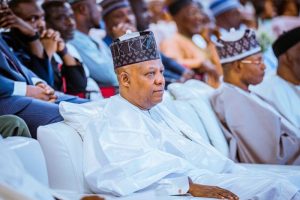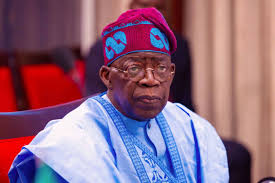President Bola Tinubu has emphasized that the development of Northern Nigeria is central to the country’s prosperity, urging leaders to seek comprehensive and sustainable solutions to the region’s challenges. Speaking at a stakeholders’ roundtable on Northern Nigerian Youth Development in Abuja, organized by the Sir Ahmadu Bello Memorial Foundation, President Tinubu highlighted the importance of empowering the region’s youth as a means to drive national transformation. The event, themed ‘Empowering the Next Generation: Strategies for Sustainable Youth Development in Northern Nigeria’, gathered prominent leaders, including the Sultan of Sokoto, His Eminence Muhammad Sa’ad Abubakar III, and Vice President Kashim Shettima, who represented the President.
In his address, President Tinubu who was represented by Vice President Kashim Shettima drew on the legacy of Sir Ahmadu Bello, the first Premier of Northern Nigeria, stressing that Nigeria’s prosperity hinges on the collective development of all regions. “Nigeria cannot prosper unless every part of the country thrives,” he said, warning that stagnation in any region ultimately sets back the entire nation. He reflected on the late Sardauna of Sokoto’s vision, emphasizing that the development of Northern Nigeria cannot be isolated from the nation’s overall success.

Tinubu expressed concern over the alarming statistic of children out of school, calling it a challenge that requires urgent action. “This alarming statistic has turned the promise of our population into a challenge rather than the dividend it ought to be,” he stated. To address this, the President reiterated his administration’s commitment to tackling youth unemployment and promoting education and skill development. Key initiatives, such as the Almajiri and Out-of-School Children Commission, the Presidential Initiative for Youth Enterprise Clusters, and the Technical Talent (3MTT) Programme, are aimed at ensuring that young Nigerians have access to education, skills training, and entrepreneurial opportunities.
Additionally, the President outlined several government programs designed to harness the potential of Nigeria’s youth, including the Skill-Up Artisans Programme (SUPA), the National Youth Talent Export Programme (NATEP), and the Investment in Digital and Creative Enterprises (iDICE). These initiatives are intended to empower young Nigerians to participate in global markets and thrive in the creative and digital economies.
President Tinubu also announced the establishment of a National Youth Development Bank and a Youth Data Bank, which will provide financial support and valuable data to help young Nigerians access opportunities and resources. He further emphasized the importance of agriculture in the North’s development, citing it as a critical sector for creating jobs and boosting the region’s economic standing.
Addressing security concerns in the North, President Tinubu reaffirmed his administration’s efforts to restore stability through measures such as community policing, the rehabilitation of displaced persons, and tackling cross-border threats like smuggling and insurgency. “The task is both urgent and achievable,” he stated, noting that by 2050, Nigeria is projected to become the world’s third-largest nation, with a significant portion of the population under the age of 21.
The President also called for greater empowerment of local governments to ensure that governance reaches every corner of the nation. He underlined that local government autonomy would help facilitate better service delivery, particularly in areas such as primary education.
Sultan Muhammad Sa’ad Abubakar III, in his remarks, echoed the importance of education for national development, urging both government and traditional leaders to collaborate in tackling the challenges of out-of-school children. He commended the federal government’s efforts through the Almajiri and Out-of-School Children Commission, calling for increased funding for education and better engagement with local communities to address the root causes of educational exclusion.
Mu’azu Babangida Aliyu, Chairman of the Sir Ahmadu Bello Memorial Foundation’s Board of Trustees, reflected on the foundation’s 15 years of service in promoting good governance and sustainable development in Northern Nigeria. He stressed the need for a coordinated approach to addressing youth restiveness and the growing number of out-of-school children in the region, urging the government to take the roundtable discussions’ recommendations seriously.
The roundtable, attended by key political figures, youth leaders, and stakeholders from across Northern Nigeria, concluded with a collective call for focused action to tackle the region’s challenges and unlock the potential of its youth. The discussions also underscored the need for continued dialogue and cooperation between the government, traditional leaders, and the private sector to achieve lasting social and economic progress.


